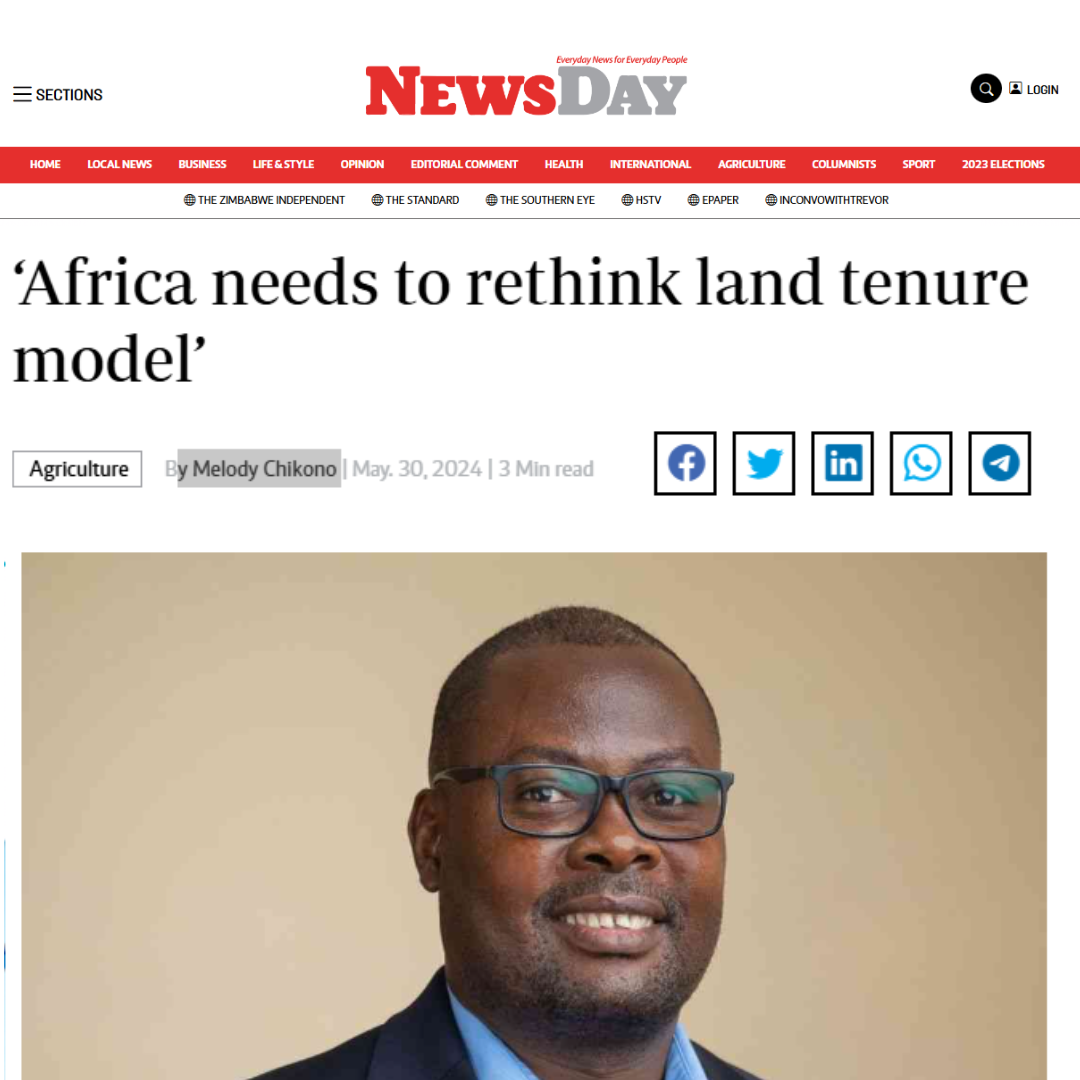Originally posted in NewsDay: https://www.newsday.co.zw/agriculture/article/200027550/africa-needs-to-rethink-land-tenure-model
Written by Melody Chikono
SIVIO Institute executive director Tendai Murisa says Africa needs to urgently re-look at the land tenure system so that countries are not easily manipulated by elite systems in relation to climate change.
The call comes as climate change and energy transitions are causing insecurity and instability in Africa, threatening the continent’s prospects of achieving its much-desired structural transformation.
Presenting at an event titled Climate Justice and Security in Africa: Connections, Accelerators and Sustainability, on the sidelines of the ongoing African Development Bank annual meetings in Kenya, Murisa said there was a need to refocus on the issue of land tenure and land interference across the continent.
He said it was time to have a better responsive mechanism to the threats that the continent is facing in terms of land systems.
“It is what I call the risk of silver bullets because it looks like we have brushed it, we’re now talking about climate financing, and in there we’ve introduced a new concept of carbon markets. I don’t know if we ever thought in the 20th century that we’d be at a place where we’d be trading in carbon at some point,” Murisa said.
“Somebody can pollute from somewhere and actually come and say they’re now carbon neutral. So that’s where we are. And when you talk about just transitions, we face that challenge. So, I think my intervention is to begin to say what other response mechanisms do we need to be thinking about?”
The Sivio Institute is a Zimbabwe-based independent policy research organisation.
Murisa said at the centre of carbon markets and carbon credits was a possibility of land alienation of communities living within those forests and areas like continuous forest.
“We have to remember that when we’re analysing land governance in Africa, it’s a continuous cycle. We have come through four waves of land governance modes or land alienation or land tenure regimes. So, a lot of land was alienated from smallholders across Africa and also the land that was given to the untapped for biofuel production,” he said.
“And, immediately after that, in the 2008-09 food crisis, we began to see a new logic, especially coming from the UAE [United Arab Emirates] region and other places, to begin to say the food security model needed a rethink.”
Murisa said discussions around climate change needed to be thought around innovations in understanding that Africa remains rural.
“In Madagascar, 80% of people are still in rural areas. In Zimbabwe, my country of birth, 66% are in rural areas. In Malawi, the numbers are the same. So, I can keep on giving you these numbers to say that as we discuss this just transition, we have to remember that the continent is rural,” Murisa said.
“And, we have to think about land governance frameworks, because that’s where the problem is now, where we’re beginning to see a lot of these new frameworks around the alienation of land and the moving of communities from their historical places of birth. Places where they have generated livelihoods and social opportunities, but being moved into other areas.”
He added: “So, we’re really creating uncertainty or deepening uncertainty caused by climate change. So rather than undoing uncertainty, some of the silver bullets that are being thrown at this problem, they have the potential to actually deepen levels of fragility. They have the potential of creating more conflicts around land. They have also the potential for together we can divide the continent.”

